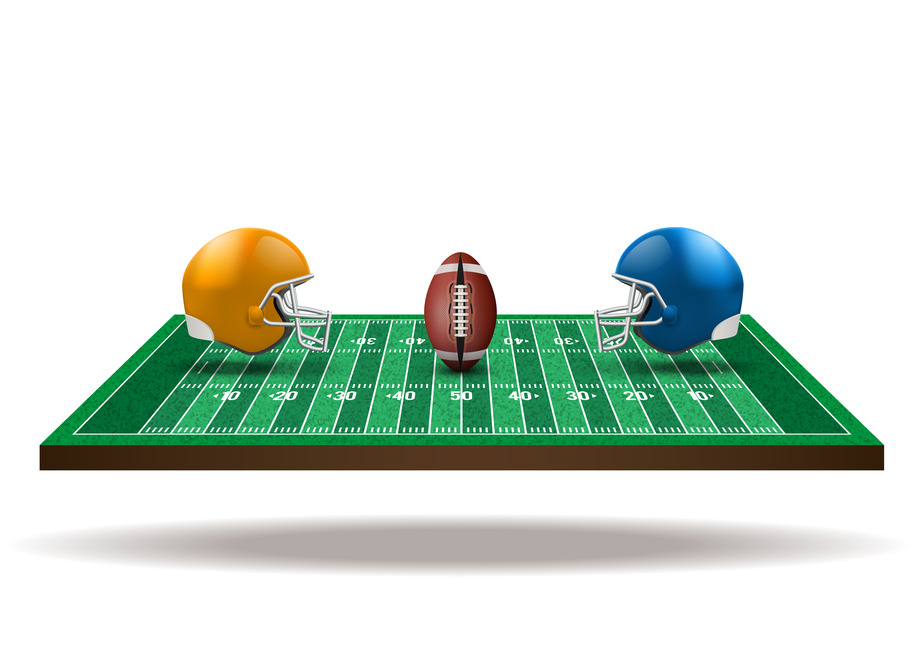If you follow fantasy football, you may have heard that sites Fanduel.com and Draftkings.com have found themselves in legal trouble over false advertising claims levied against them. Sites like these have been around for a while, and, as advertising for them has grown, so has the scrutiny.
How the Sites Work
The sites are based off fantasy football, which has been around for decades, becoming mainstream about 15 years ago. Traditionally in fantasy football, before the season starts, participants draft a collection of NFL players to form one “team” for the entire NFL season and earn points weekly, based on the players individual performances each week. In a “total point” league, the team whose collection of players amasses the most points throughout the NFL season wins. Often, at the end of the season, the team in first place wins a prize of some sort. Sometimes, that prize is money, which comes from the entry fee participants pay to play.
FanDuel and DraftKings advanced this model. Instead of having their participants draft a team at the beginning of the season and participate throughout its entirety to win, these sites generally allow participants to select a new collection of players every week, and winners are awarded prizes weekly. Thus, someone can play for one week, or every week, as they choose, picking new players every time. Additionally, unlike traditional fantasy football, participants are free to select from any player in the NFL, regardless of other participants select the same player.
Lawsuit Alleges Insider Participation
Recently, a class action lawsuit was filed in the Southern District of New York against FanDuel and DraftKings. The suit alleges that the game was rigged because employees of the sites were allowed to play and win. Those employees, the suit alleges, have an unfair advantage over outside participants because, for example, when an NFL player does well and is not picked by many participants, the participants who select that player get more points. Employees with access to how many people are picking a player can thus select players likely to yield more points.
As a result, the suit alleges, fantasy football players have a lower chance of winning and are not on an equal playing field.
Game of Skill Representation Challenged
The suit, which includes claims for negligence, fraud, and false advertising, also alleges that the games are billed as games of skill. Participants who have more knowledge or can more accurately predict which NFL players will do well have a higher chance of winning, according to the sites. But the suit alleges that the level of skill is negated when those with inside information are allowed to play, thus making the advertising false—especially when participants were unaware that employees were allowed to play.
It is important to remember this is a private suit, and, like all private suits, some have merit and others don’t. Nobody can stop someone else from suing.
Still, the case is a good reminder for businesses that do heavy advertising that any internal policies that may alter the promises or representations made in advertising need to be reviewed to make sure they are not inadvertently altering what is being represented to the public.
What is false advertising?
In Florida, false advertising is prohibited by statute. Section 817.41, Florida Statutes, makes it “unlawful for any person to make or disseminate or cause to be made or disseminated before the general public of the state, or any portion thereof, any misleading advertisement.” Such making or dissemination of misleading advertising shall constitute and is hereby declared to be fraudulent and unlawful, designed and intended for obtaining money or property under false pretenses.
The term “misleading advertising” has been interpreted to include “any statements made or disseminated to the public in oral, written or other form which are known or through the exercise of reasonable care, could have been ascertained, to be untrue or misleading and which were made or disseminated with the intent or purpose of selling goods or services or to inducing the public to enter into an obligation relating to such goods or services.” Third Party Verification, Inc. v. Signaturelink, Inc., 492 F. Supp. 2d 1314, 1322 (M.D. Fla. 2007).
When a Plaintiff can prove that it was damaged by a misleading advertisement, it can sue for recovery of its damages as well as its attorney’s fees.
Fallen victim to, or accused of publishing a misleading advertisement?
Do not get into trouble when it comes to false representation or advertising. If your business has been accused of false advertising, or if you yourself have been a victim of false advertising, contact the Law Offices of Cynthia Conlin, P.A. today by calling 407-965-5519.




This was a very informative article. I’d heard about this controversy but never really understood it. Fantasy football sounds like the lottery, where everyone’s entry fee goes towards the winner’s prize. So far so good, but why on earth are the employees allowed to play? I can’t participate in the contests we hold at my place of employ because if I won it would look fishy. Nuff said.